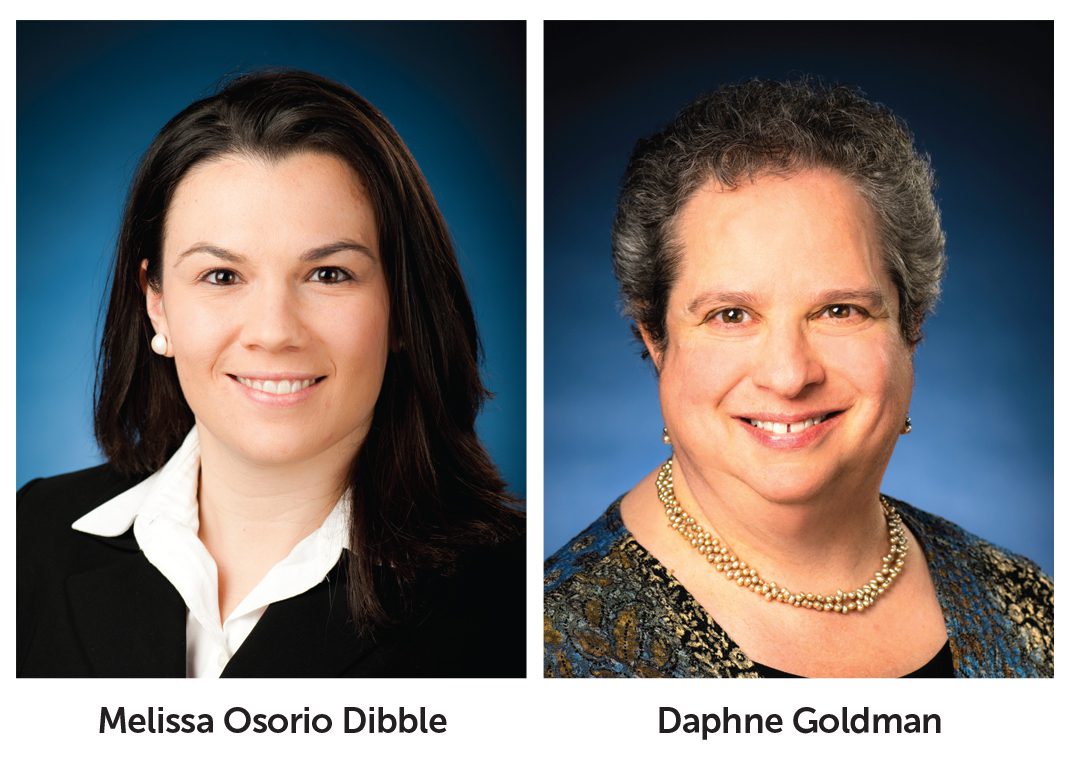Archer & Greiner: Planning a Legacy

Planning a Legacy
Estate planning may not be the first thing that comes to mind as an expression of love. It can be unsettling for some, says Archer & Greiner partner Tara Hagopian Zane, as it forces people to think about an uncertain future of the people and things they cherish most.
“It’s a topic that forces us to confront our mortality, which can be uncomfortable,” says Zane, co-chair of Archer’s Estates and Trusts Group. And while fear is the top reason people avoid estate planning, the actual process is anything but anxiety producing, she says. As Zane puts it, estate planning is about taking control of the parts of life that can be reasonably foreseen and making smart choices on how to handle the parts that are unpredictable.
“As soon as people put together a comprehensive plan, it always gives them a huge sense of relief that they’ve put it behind them,” says Zane. “It’s not only a legal necessity but an act of love that ultimately takes so much pressure off their loved ones.”
Who needs a plan?
“Everyone needs estate planning,” says Zane. By everyone, she means not just people who have lots of assets or those who are facing milestone double-digit birthdays or have health issues. Even teenagers could run into legal roadblocks if they don’t have the legal documents in place.
This became painfully clear during the height of the pandemic when parents – including Zane – found they couldn’t discuss their college-aged kids’ health and financial matters with school officials without first having their teens’ express permission through an Advance Directive (Living Will) for healthcare and Power of Attorney – even when the parents pay the tuition bills.
“She went to school without an Advance Directive,” says Zane, who offers her story to clients as a cautionary tale. Without putting in place the legal documents that would have listed her as someone who can make financial and medical decisions on behalf of her 18-year-old daughter, Zane was powerless to advocate on her daughter’s behalf.
“She literally missed out on orientation and was put into isolation over an inconclusive Covid test, and nobody at the school would talk to me without first establishing power of attorney,” she says, noting that she strongly recommends establishing a power of attorney agreement that gives parents access to health, financial and educational information before students leave for college.
Planning for the future
Estate planning isn’t a one-off task, says Archer Associate Kelly M. Barry, whose practice is focused on estate planning and administration. It should be revisited every 3-5 years or anytime a significant life change occurs: like a marriage, divorce, a move or purchase of real estate, the birth of children or a death in the family. It typically starts with a conversation with an Archer attorney about a client’s goals to help identify the documents needed to structure plans. Estate planning takes into account all assets as well as the health and financial care of relatives, oneself, their business as well as charitable and non-profit organizations they wish to support.
“We become trusted advisors for our clients,” says Barry, whose practice represents clients in all aspects of estate, trust, and related tax matters, including planning for both simple and complex estates, and probate litigation. “It is so important that we understand our clients’ goals to draw up documents that specifically address their needs.”
For many, it starts with a living will, which provides instructions for dividing up property and the custody of their children and sometimes pets. Other tasks involve establishing a guardianship for living dependents, naming an executor of the estate to oversee the terms of the will, creating or updating beneficiaries on plans such as life insurance, IRAs, and 401(k)s and establishing gift planning to charitable and non-profit organizations.
Archer’s Estates and Trusts Group, consisting of 14 attorneys with different areas of expertise, work together and often will coordinate with their client’s other trusted advisors, such as accountants, financial planners, investment advisors, custodians and trustees, says Barry. She and her colleagues have extensive experience and the legal and financial background to not only achieve their client’s objectives of transferring property, but to do so in a way that avoids unnecessary taxation.
For some clients, Archer attorneys work to set up trusts for a child or other relatives with health problems. It also could mean tailoring documents so benefits can only be accessed by heirs if they agree to specific terms, such as using inheritance money for education (not sports cars). It is never cookie-cutter work, says Barry.
“Some might want their documents set up to minimize taxes, shield children from debt or to protect loved ones with special needs,” she says. “We also work with parents to create trusts when they are concerned about protecting assets from their adult child’s spouse.”
What could go wrong
“It’s really important to consider other factors in addition to documents, like how specific assets are titled, whether or not you have joint ownership, and if the beneficiaries are consistent and up to date,” says Melissa Osorio Dibble, a Partner in Archer’s Estate & Trust Litigation Group. Dibble notes that the need for estate litigation arises when one or more areas of the will are contested in court.
While Archer strongly encourages all clients to start comprehensive estate planning as early as possible, families often call when someone falls ill and has less time to work on documents.
But in the event that someone dies without a will or legal documents are challenged in court, Archer’s estate and litigation attorneys have decades of experience representing clients in matters of litigation involving probate matters, estates, trusts, fiduciaries and guardianships.
“If you die without a will, the state will impose the manner in which your assets will be distributed, regardless of your desires,” says Daphne Goldman, an estate planner and estate and trust litigator Of Counsel at Archer.
In that case, a person’s property and other assets are distributed to one’s closest living relatives as defined by the state. If their goal was to leave assets to charities or other organizations, in the absence of a will or trust, those organizations will not be included.
Goldman notes that in marriages involving blended families, parents should be aware that step children, no matter how close a bond is formed, are not considered family in the eyes of the law; gifts to them should be specifically set forth.
The advantage, says Zane, of working with seasoned estate-planning attorneys who partner with litigators on a regular basis is the increased knowledge that partnership provides.
“The great thing about working with our litigators is I’ve been trained to see the red flags and understand the potential for litigation in any situation,” she says. “I draft plans that are designed to withstand court challenges. That’s the difference between hiring an expert in the field or someone who dabbles in wills.”




